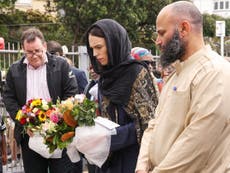Sri Lanka, the top holiday destination for 2019, is polluted by torture and lies
Medical experts have confirmed that, 10 years after the end of the civil war, Tamils are still subject to torture and abuse

“The picture they paint is all rainbows and butterflies since the elections in 2015. But that’s wrong. The fear and distrust is constant.” Those words from a human rights activist in the Sri Lankan city of Jaffna, ahead of a United Nations decision on its role in the contry this week, reflects the disconnect between a global narrative of how much Sri Lanka has changed and the more unsettling reality on the ground.
This year marks the tenth anniversary of the end of Sri Lanka’s brutal 26-year civil war, in which government forces and the rebel Tamil Tigers alike committed serious war crimes. In the final stages of the war, between March and May 2009, tens of thousands of Tamil civilians were killed in just a few months. Government shelling included repeated targeting of hospitals in an area of north-east Sri Lanka which was cynically proclaimed a “no-fire zone”.
In 2015, Maithripala Sirisena was elected as Sri Lankan president, in place of Mahinda Rajapaksa, whose military victory had included what a UN report described as “an assault on the entire framework of international law”. Sirisena, by contrast, vowed to uphold human rights. Some diplomats in Colombo are still eager to take him at his word, insisting that Sri Lanka is a country reborn.
Lonely Planet, the travel publisher, has declared Sri Lanka its top destination for 2019. But this holiday paradise is polluted by torture and lies.
In Sri Lanka, the victors’ narrative is strong: war memorials on the road from Colombo to Jaffna praise Rajapaksa for his “determined, courageous, political commandership” which “brought an end to the era of terror”. In response to calls for justice, there is talk of “war heroes” who should be praised, not punished.
Sirisena claims, with breathtaking chutzpah, that government forces committed no war crimes. This failure to confront, let alone prosecute, past crimes provides the climate in which torture and other abuses continue today. Torture survivors who have received rehabilitation treatment from Freedom from Torture tell us repeatedly of the importance of seeing those who have committed torture brought to account.
Our new report, "Too Little Change", reveals a pattern of ongoing torture of Tamils in the context of security operations over the past four years, forensically documented by our doctors. The latest report on Sri Lanka from the UN human rights office, published this month, echoes those findings.
The UK government has in past years been reluctant to believe the testimony of many Sri Lankan torture survivors, even when backed up by powerful medical evidence. Asylum decision-makers even started to argue that scars were self-inflicted “by proxy”. This month, the UK Supreme Court pushed back strongly on that narrative, concluding that evidence of this among asylum seekers was “almost non-existent”. The court reaffirmed the central role of medical experts.
There have been limited steps towards justice and reconciliation in the past four years. An Office of Missing Persons has been created, which seeks to address the epidemic of forced disappearances in past years. Sri Lanka’s national Human Rights Commission has provided a hearing for those who have suffered rights violations and who continue to do so. But many of the root problems that allowed mass human rights violations to occur for decades have not been addressed, and the country remains unstable.
In a constitutional coup last year, Sirisena tried to eject the prime minister, Ranil Wickremesinghe, and bring Rajapaksa back into power. He backed down only after a wave of domestic and global protest culminating in a ruling by Sri Lanka’s Supreme Court. Today, many in Sri Lanka believe that the Rajapaksa clan could yet return to power. “This is just a window,” one activist in Colombo said.
This is crunch time to effect lasting change in the country. The UN Human Rights Council in Geneva will this week decide whether to keep the international spotlight on Sri Lanka to ensure that progress towards reform and reconciliation does not stall, for the benefit of the majority Sinhalese and the minority Tamil communities alike. Given how little progress there has been in the past four years, specific and time-limited commitments are be essential, rather than vague promises that are simply ignored.
The use of unpunished torture is a litmus test for the rule of law in Sri Lanka more generally. If Sri Lanka is to become a stable, just society, then torture must finally end.
Steve Crawshaw is policy and advocacy director at Freedom from Torture




Join our commenting forum
Join thought-provoking conversations, follow other Independent readers and see their replies